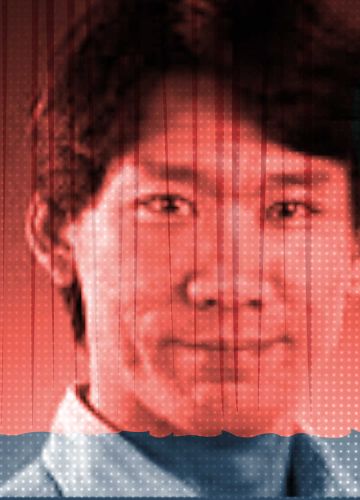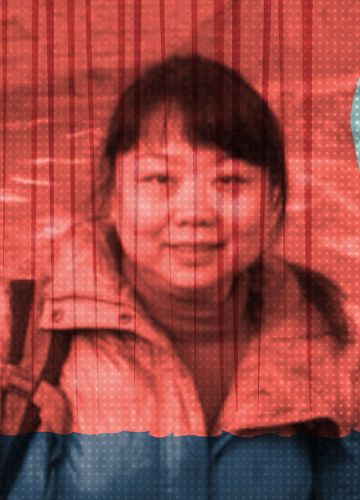China’s Liberal Press and its Feminism Gap

Dalia Parete

Li Sipan
In the late 1990s, the media landscape in China was overtaken by a wave of commercialization and marketization as the Chinese government sought new ways to support otherwise expensive newspaper and broadcasting operations — and to encourage a “media industry” (an entirely new concept at the time) that was more suited to the country’s rapidly developing economy. One after another, media companies launched market-oriented reforms. And while media groups, most linked to provincial and city governance structures, pursued economic benefits, many working within these emerging outlets began embracing something less expected: journalistic professionalism.
The new generation of media outlets quickly distinguished themselves from their previous roles as propaganda outlets, serving growing, and increasingly affluent, audiences. Perhaps the most representative of these changes was the Nanfang Media Group (南方報業傳媒集團), which was known at the time for its suite of professional media outlets, including Southern Weekly (南方周末), was once praised by The New York Times as “China’s most influential liberal newspaper.” During this period, many liberal intellectuals used these media platforms to disseminate new ideas, and to speak more critically on social and political issues.
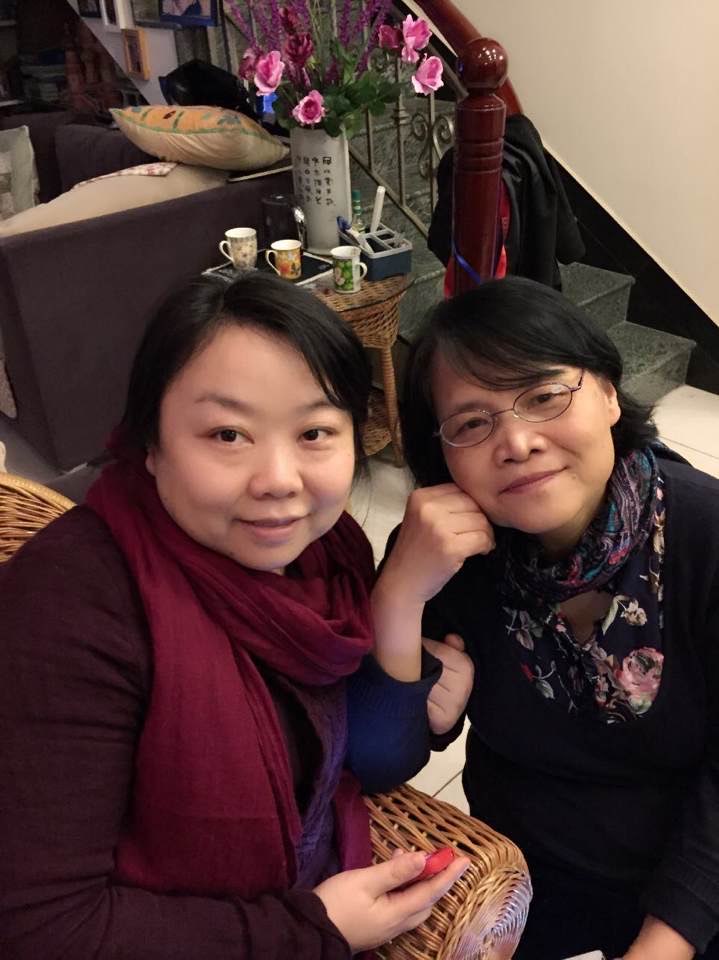
Veteran journalist Li Sipan (李思磐) joined the Nanfang Media Group in 2002, working there in various roles for a decade. But even in the space afforded by this relatively free and open environment, she keenly felt frustration at the systematic neglect of women’s rights. Later, inspired by Sun Yat-sen University Professor Ai Xiaoming (艾晓明), a women’s rights activist and filmmaker, Li Sipan and a group of female media professionals established the feminist platform Women Awakening Network (新媒體女性). They conducted advocacy on women’s issues, organized training workshops for female journalists, and hosted exhibitions and lectures — all while actively producing critical reporting on gender-related topics.
The period of relative openness proved to be short-lived. Following a cascade of events — including the 2013 controversy over the censoring of the New Year special issue at Southern Weekly (南方周末), and the 2015 “Feminist Five” incident — China’s market-oriented media experienced a rapidly shrinking public discourse space. Feminist voices came under severe suppression, and the Women Awakening Network also faced mounting pressure. Li Sipan was forced to leave the NGO in 2018 to take a university teaching job. On May 21, 2021, the Women Awakening Network Weibo account suspended regular updates. Its final post was a repost about the Zhu Jun (朱軍) sexual harassment case.
Li Sipan sat down with Tian Jian (田間), the China Media Project’s Chinese-language outlet on journalism and media, and CMP researcher Dalia Parete to discuss the absence of feminist consciousness in China’s liberal media. Speaking as both a feminist activist and an investigative journalist, she offered her observations and insights on China’s feminist movement and women’s journalism since the 2000s.
Tian Jian/CMP: Chinese media institutions were historically male-dominated. Did you face any challenges as a woman?
Li Sipan: I started working in the investigative department of Southern Metropolis Daily (南方都市報) in 2007. At that time, there were only two female reporters in the department — one in Guangzhou and another at a different bureau. The female reporter in Guangzhou was happy to have another woman join, noting that the constant presence of a large group of men in a smoke-filled room had made her feel very uncomfortable.
We didn’t have to work fixed office hours, and back then, every Monday, those of us who weren’t traveling for work would have dinner together. We were a really tight-knit group — everyone was good friends, and our work and personal lives overlapped quite a bit. But as a woman, I still felt a bit isolated. When we’d eat together, it was a male-dominated scene where the guys would drink heavily, competing to see who could drink more until they were making fools of themselves. Of course, the younger generation probably doesn’t do this anymore. But the way the men talked to each other often left us feeling awkward and quiet. They would casually toss around words like “beautiful” or “sexy” and other random, totally inappropriate words to refer to us.
This divide was also quite evident professionally. During the era of market-oriented journalism, social affairs and legal reporting were important beats that could easily enhance a journalist’s reputation. Since this type of reporting often involved cases of wrongful conviction and judicial injustice, it aligned with the traditional Chinese ideal that intellectuals shouldering moral responsibility and upholding justice, making it easier to capture readers’ attention and achieve notable results.
This type of reporting was typically easier for men to excel in. Public opinion supervision at that time was primarily conducted through cross-regional reporting, which required dealing with local officials. There was a common understanding that male reporters could drink with these officials until they became like sworn brothers — after some chest-thumping and shoulder-patting, they might receive news tips or key documents. I would also engage with officials, but honestly, many of these official drinking sessions were quite crude, with rampant sexual harassment, dirty jokes, and inappropriate physical contact. This made things really difficult for women, so I preferred to accept less-than-perfect results rather than drink with male officials.
The kinds of stories we covered back then were completely different from today’s. A large proportion of coverage focused on rural issues, whereas now approximately 90 percent of topics center on the urban middle class.
What’s particularly interesting is that many of the male reporters in the investigative department back then were quite legendary figures. Some had previously sold fruit for a living, others had never formally attended university, but they excelled at breaking through barriers and “getting the scoop.” However, the female reporters had somewhat different backgrounds—the women around us typically had stronger educational credentials. Most of the men held bachelor’s degrees, while quite a few of the women had master’s degrees. I originally joined the investigative department at Southern Metropolis Daily because the department head wanted someone who could cover intellectual affairs, civil society issues, and Greater China stories. They liked that I knew Hong Kong, Macau, Taiwan, and Singapore, so I even spent some time reporting on Taiwan. As the Global Media Monitoring Project has observed, although I also covered politics as a female reporter, my assignments were still relatively “soft” — culture and society oriented — compared to the hard-hitting stories assigned to male reporters.
There was a common understanding that male reporters could drink with these officials until they became like sworn brothers — after some chest-thumping and shoulder-patting, they might receive news tips or key documents.
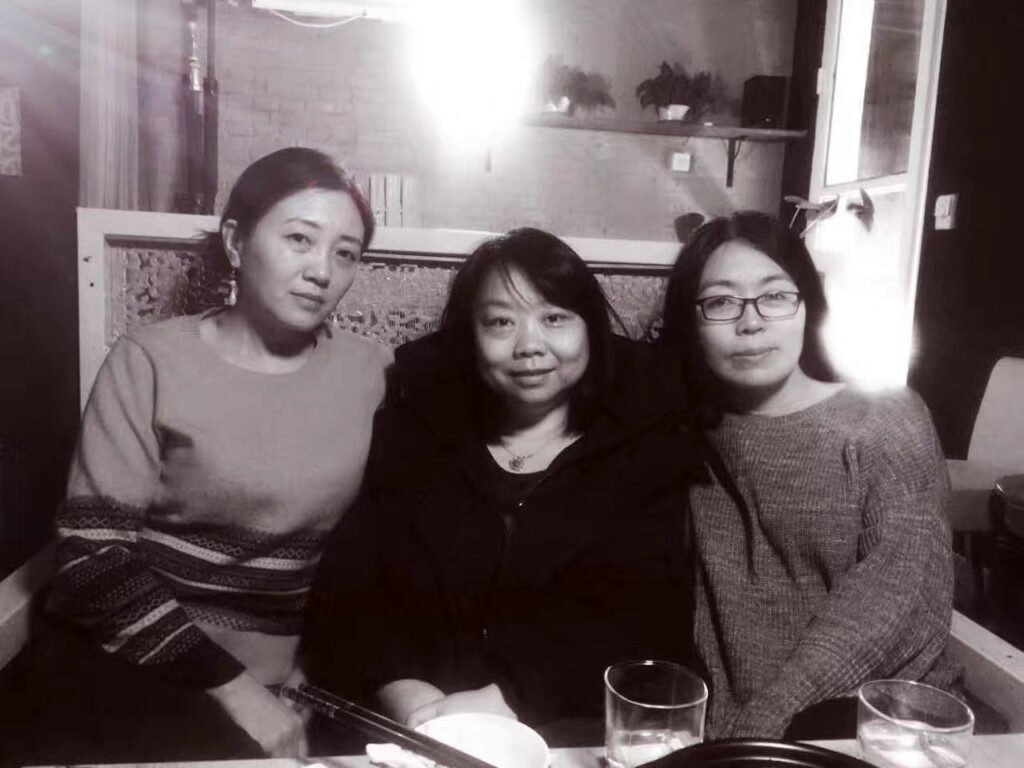
TJ/CMP: Why did you become so focused on women’s issues?
Li: It’s a long story. Feminism has appealed to me since middle school, probably. When I was in university and they held the World Conference on Women in Beijing in 1995, I wrote to the organizing committee asking for materials. My writing and studies were related to women’s issues, too. But what pushed me to take action was dealing with this male-dominated newsroom culture.
Nanfang Media Group was considered the most progressive media organization at that time. What impressed me about them was this: when I was in Shanghai, local newspapers would refer to migrant workers as “blindly flowing outsiders” (外來盲流), which I found to be an extremely discriminatory term. But when I arrived in Guangzhou and began reading Southern Metropolis Daily, I noticed they didn’t treat migrant workers as a special or marginalized group. Their reporting would provide detailed portraits of individual migrant workers, including where they came from, what kind of work they did, which factory they worked at, and so on.
Later, I realized that even in Guangzhou’s press industry — which seemed to be the freest in China — there were many gender-related aspects that made me feel uncomfortable. For example, in 2005, one district implemented gender education where, during exercise breaks, girls were required to dance while boys practiced martial arts. Several reputable newspapers in Guangzhou reported this as a progressive development.
There was also the Peking University minority language program admissions controversy, where parents protested because female students needed admission scores dozens of points higher than male students. At the time, Southern Metropolis Daily‘s editorial department was extremely progressive — constantly discussing political reform — and yet they published a commentary arguing this wasn’t gender discrimination. Also in 2005, when China was amending the Law on the Protection of Women’s Rights and Interests (婦女權利保障法), women’s organizations worked tremendously hard to include anti-sexual harassment clauses. But Southern Metropolis Daily basically said it was ridiculous —“wu li tou”— like something out of a Stephen Chow (周星馳) martial arts comedy.
I sincerely believed in the Nanfang Media Group philosophy. It provided journalists with tremendous freedom. I had a lot of personal growth there, and I formed some of the most important friendships of my life. But regarding gender issues, it was problematic in so many ways. Southern Metropolis Daily had several female editorial board members, but the journalistic culture remained very male-centered. Even the female leaders lacked sensitivity to gender issues. Like leaders in many mainstream institutions, while these women may have demonstrated more empathetic leadership styles compared to men, professionally they felt compelled to perform after the pattern of their male counterparts —perhaps even consciously or unconsciously distancing themselves from their female identities. In essence, everyone considered women’s rights unimportant, viewing gender equality as communist overreach — a failed ideological agenda.
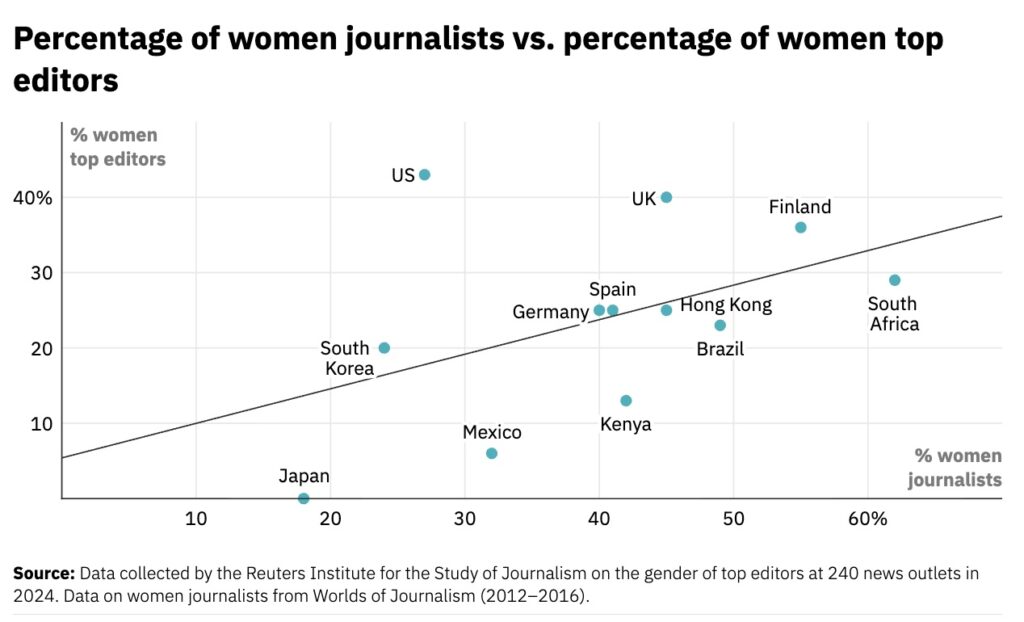
Actually, I preferred being a reporter, but I started writing opinion pieces because of the Peking University minor languages program incident. I couldn’t sit still without writing about it, and that later became my standard response whenever I wrote commentaries. I wrote the piece, but Southern Metropolis Daily wouldn’t publish it, so I took it to Shanghai’s Oriental Morning Post (東方早報) instead. The editor there said I wrote well, but he also said [giving his sense of why it couldn’t be published]: “What you have there isn’t liberalism — it’s anti-communist.”
TJ/CMP: How did Women Awakening Network come about?
Li: The turning point was getting to know Professor Ai Xiaoming. Professor Ai was working tirelessly to transform the media reporting culture at the time. She once organized a seminar specifically about Southern Weekly’s misogynistic advertisements and invited the then editor-in-chief Xiangxi (向熹) to participate. But in reality, no one in the media industry would actually endorse that kind of approach.
Later, Professor Ai collaborated with the British Council to bring in BBC experts for training on media and gender. The establishment of Women Awakening Network (新媒體女性) was a direct result of this training initiative. I wasn’t the sole founder. We were a group consisting of 12 media professionals from Guangzhou who had participated in the training.
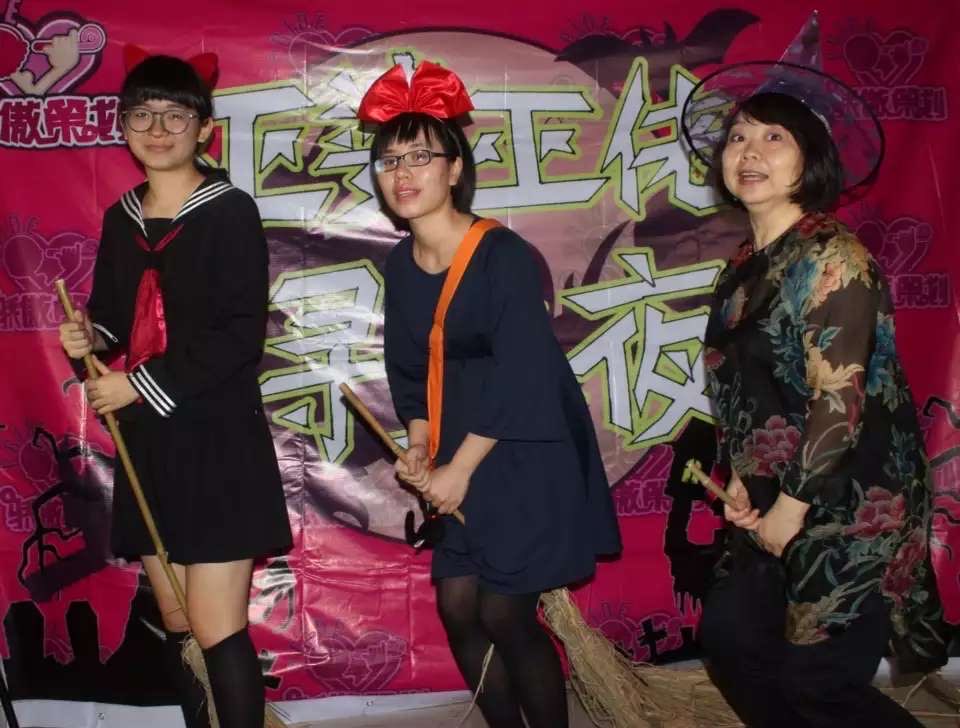
Actually, that training had some issues. Because we needed interpreters for everything, the two-day workshop couldn’t cover much ground. Additionally, the BBC has these ethical guidelines, the kind that are necessary from both a legal standpoint and for social responsibility in places where there is actually freedom of speech.
But matters of journalistic ethics are hard to push in China. Chinese journalists really hate the whole journalism ethics thing, mainly because China is a place where it’s tough to get public information out there in the first place. Journalists face all kinds of obstacles and risks. If you can manage to get a story published — that’s already something.
So when we [at Women Awakening Network] advocated for gender mainstreaming, we didn’t position journalism ethics as our core training objective. We used the term “journalistic professionalism” (新聞專業主義) instead, focusing on providing journalists with more gender experts and activists as news sources — helping them develop their stories rather than telling them not to pursue certain types of coverage. We trained them on applying public service news values in their reporting, revealing truth, and promoting reform, based on the existing operating logic of market-oriented media.
“What you have there isn’t liberalism—it’s anti-communist.”
Chinese women’s rights groups were unfamiliar with commercial media due to their operational methods. I noticed that the press avoided covering women’s issues because the two sides rarely interacted — in contrast to human rights lawyers and environmental groups at that time. So we wrote a few contact lists for women’s research and activism groups. We helped researchers, activists, and journalists connect. We provided organizations with lists of journalists they could contact, and journalists with lists of experts and groups they could call.
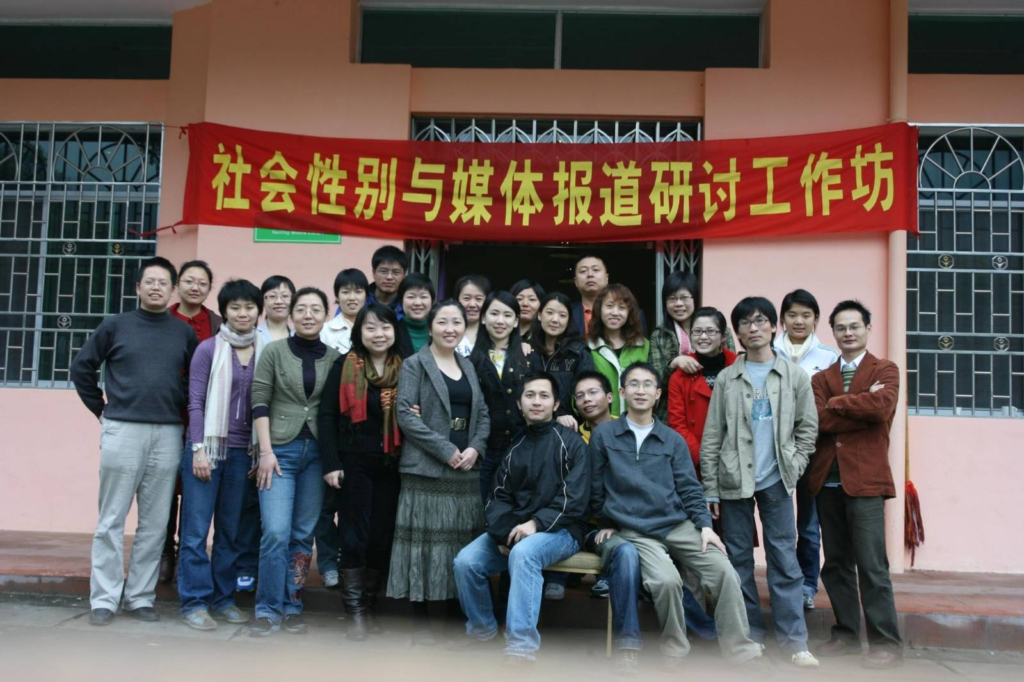
TJ/CMP: What was unique about Women Awakening Network‘s feminist activities?
Li: Before 2003, Guangzhou had no feminist organizations. In the wake of the World Conference on Women, a lot of feminist organizations were established in Beijing, as well as in Zhengzhou and Xi’an, building on the groundwork laid by previous generations of feminists in those places. So when international funding became available, they naturally prioritized investing in and developing these existing networks first.
At that time, feminists from northern China would often describe Guangzhou’s feminist activities as “very spirited.” Why did they say this? Because the leaders of women’s rights organizations in Beijing tended to come from official media outlets, or from the Women’s Federation (婦聯), or to be scholars from government think tanks. They were all people within the system. They not only needed to maintain good relationships with the government — they also had to consider the government’s operational logic, trying not to cause trouble. That is to say, rather than exposing social problems, they had to be helpful by promoting women’s rights concepts through publicizing the political achievements of local governments that were willing to support feminist projects.
But Guangzhou was different. We served as Women’s Federation experts for a period under Wang Yang’s (汪洋) governance of Guangdong, but our work wasn’t directly connected to the institutional Women’s Federation operations. Guangzhou is a media hub, so we used the media as our point of leverage. At that time, Guangzhou hosted all sorts of activities on remarkably progressive topics on a weekly basis. Public intellectuals were quite bold in the things they said, things that would be nearly impossible to hear publicly in other Chinese cities.
But there were hardly any female speakers back then. There were no talks about women’s issues — and definitely no feminist lectures. So we started organizing talks, exhibitions, seminars, and other events. We would invite journalists from the media to come. Commercial media journalists generally tend to resist being lectured to, or having ideas pushed on them. Instead, you need to let feminism exist in their city, and make feminist voices a real part of the conversation.
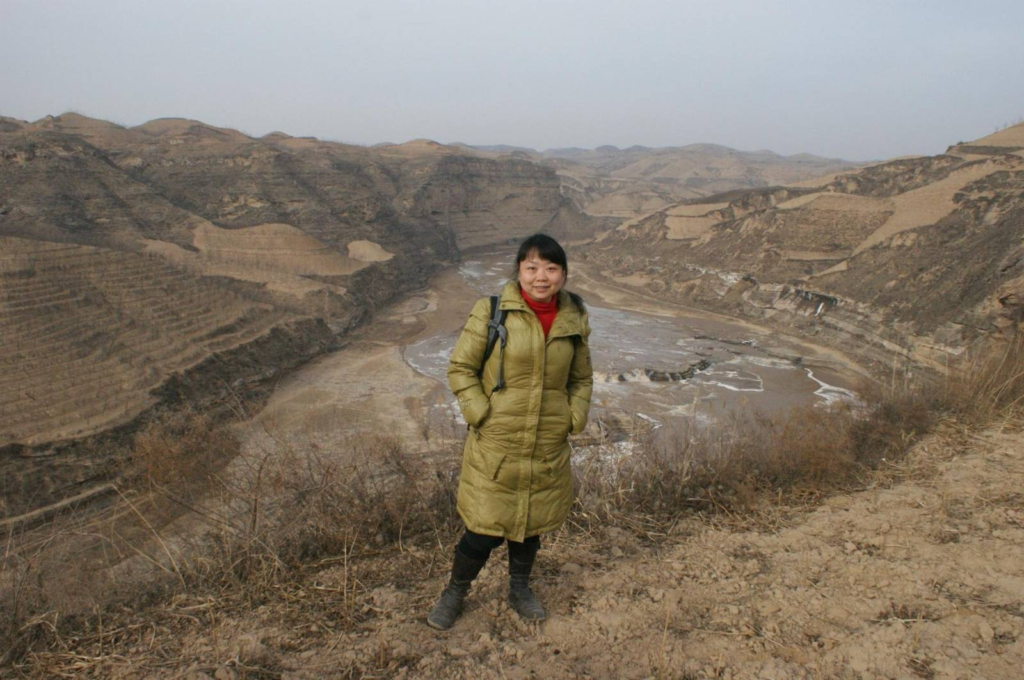
By the time the young feminist activists emerged in 2012, Guangzhou media already had a group of journalists who were interested in feminist issues and had a basic understanding of women’s rights organizations. This was the result of our decade of work. Therefore, Guangzhou media was the most supportive of young feminist activism. Of course, at that time feminism wasn’t the only movement flourishing. Guangzhou’s civil society was vibrant on many fronts. Young people were engaged in a range of causes, from environmental protection to budget transparency, cultural preservation, and so on. Our work in women’s rights also influenced a certain cohort of young people.
TJ/CMP: Women Awakening Network also worked with online platforms like NetEase (網易) and Phoenix.com (鳳凰網), putting out some of the in-depth stories. Why did you decide to partner with new media?
Li: In 2014, when the Wu Chunming (吳春明) sexual harassment case happened at Xiamen University, we launched an eight months-long campaign around it. We supported the victims, provided them with legal advocacy, and ensured their voices were heard in the media. We published a series of investigative pieces and detailed commentaries about the case. We collaborated with Chinese university teachers and scholars from around the world to translate anti-sexual harassment policies from various countries and universities. We also drafted policy recommendations for the Ministry of Education and Xiamen University, and secured the signatures of scholars around the world on joint letters to the Ministry of Education. We also put together sexual harassment prevention handbooks for college freshmen, organized film screenings about sexual harassment in academia for lawyers, social workers, and people from all walks of life — that sort of thing.
By that time, the advertising market for newspapers was already collapsing. After the 2013 Southern Weekend incident, investigative reporting departments were shuttered and many veteran journalists were leaving the profession. As experienced professionals left traditional outlets, many simply lost their voice. Most of the resources had shifted to online platforms. As competition between news apps heated up, online portal sites like Sohu, NetEase, Tencent, and Phoenix all started doing original news content for their apps. And they were poaching a lot of talent from traditional media, offering much higher salaries.
Internet companies had abundant resources, and they emphasized efficiency. They wanted to leverage their platforms to mobilize more resources. Therefore, they were very open and flexible. For example, when our grassroots advocacy group for legislation against domestic violence required media support, all the major portals provided us with resources to raise our public exposure — things like live streaming and expert interviews. During the Xiamen University incident, the departure of many veteran journalists left traditional media without the talent they needed to cover the story properly, leading to lots of mistakes. Internet companies were more flexible and could accommodate outside sources, such as people from NGOs, to collaborate on news content production. An outlet like Southern Weekly probably couldn’t publish an article by a women’s rights organization.
We worked with NetEase’s Plum News (真話頻道) to put out reports about the Xiamen University incident, which helped get the word out.
But relative to internet outlets, traditional news media still have a stronger watchdog role. This is because they are not purely commercial. In a way, they’re part of the propaganda system. Eventually, the Ministry of Education put out “Opinions on Establishing and Improving Long-term Mechanisms for University Teacher Ethics Construction.” This was the first Ministry of Education document that banned sexual harassment. At that point, Xiamen University was still dragging its feet on taking action against Wu Chunming (吳春明), the perpetrator in that case. So we arranged for two of the victims to appear on “Oriental Live Studio” (東方直播室), a program on Shanghai’s Dragon TV, where they could share their stories. The day after the program aired, Xiamen University finally announced they were stripping Wu Chunming of his Party membership and his teaching credentials. But the decline of traditional channels was about more than just money and changing technologies. Soon after that segment aired, “Oriental Live Studio” was shut down [for political reasons].
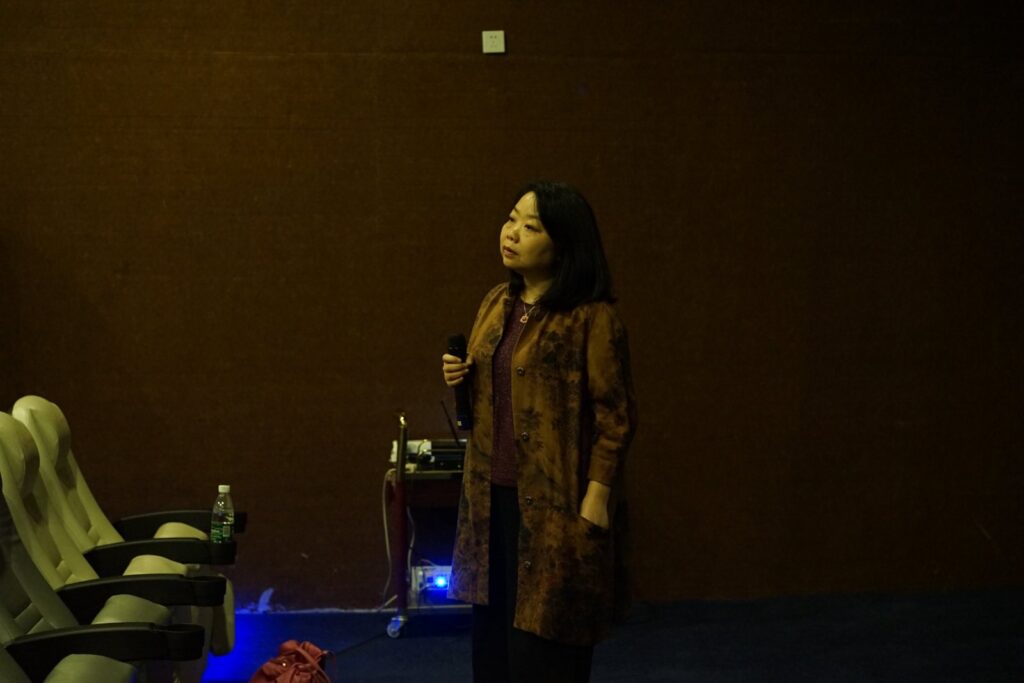
Internet platforms and traditional media each had their distinct roles. However, from 2015 to 2017, the traditional media space shrank rapidly, while social media also came under state control. For instance, in 2016, we organized a rather interesting campaign to resist March 7 — a feminist critique of the official “Girls Day” and its often sexist rituals. The “anti-March 7th” (反三七) opposed the official depoliticization of International Women’s Day, its detachment from women’s rights, and the support for or tolerance of “Girls’ Day” (女生节) — a campus tradition that reinforces gender stereotypes, discrimination, objectification, and the sexualization of women. In contrast, the call to “celebrate March 8th” (过三八) emphasized women’s civic identity and demanded gender equality, especially within the university context.
Still, by 2017, we could no longer do it because I personally experienced quite severe online harassment. Of course, today this type of [online harassment] is directed at activists and journalists across the board. Later on, due to the passage of China’s NGO law, NGO work became very high-risk. I was “advised” by [government agencies] and gently urged to exit the Women Awakening Network organization. That turned me toward teaching.
TJ/CMP: Given the current situation with such strict government control, how can feminist issues and movements be promoted and spread?
Li:I personally focus on women’s rights and journalism, and both areas have become extremely challenging since the pandemic.
At the beginning of the pandemic, many journalists were still actively doing reporting. Some were citizen journalists who weren’t affiliated with any news organization, but when they went to Wuhan, many of them were detained and arrested. Back then, we still felt journalists could still manage to do meaningful work through non-fiction platforms and other alternative institutional media (机构媒体). But today, journalists from established media outlets are facing the same fate as those citizen journalists back at that time. Everyone has become extremely cautious, and it has become very common for journalists to face both state violence and online violence.
And don’t even get me started on women’s rights. The feminist movement has actually been systematically suppressed step by step, from the 2015 “Feminist Five” incident right up to now. At this point, it’s basically impossible to have any registered women’s rights organizations or advocacy groups. New Media Women held out for a long time, but they were also forced to shut down between 2020 and 2022.
The [authorities] invest a lot of energy in controlling the spread of feminism. They will say to individuals and organizations: “Look, there are some things you can do, but don’t talk about them online.”
And don’t even get me started on women’s rights.
They control the dissemination of public and feminist-related information. What is meant here by “public”? It’s often connected to government authority, but it may also relate to the breadth of information transmission (傳播範圍擴大). Suppose you discuss domestic violence, bride prices, or marriage and family issues that generate significant controversy. In that case, they might say you’re inciting gender antagonism. This is what ordinary bloggers encounter. But you can still engage in these discussions. However, anything related to ideology or state institutions is strictly guarded against. For instance, the Liu Qiangdong (劉強東) sexual harassment case can still be discussed, but the Zhu Jun (朱軍) case [involving a prominent state media figure] cannot.
I once made a social media post discussing how many women had been killed in the war in Ukraine, and then the police contacted me. Initially, I thought it was because of the Ukraine war, but it wasn’t. Their reasoning was that it involved women, because that article had garnered hundreds of thousands of views. Given how vigilant they are about the spread of feminism-related information, launching feminist advocacy campaigns as previously defined has become extremely difficult. For example, during the chained woman incident, some female netizens took personal action to visit that village.
But the undeniable fact is that today, after years of advocacy and awareness-raising, feminism has become common knowledge. It no longer requires organized feminist groups to drive its influence. It’s more like individual water droplets converging into an ocean, with many different forces now working to spread feminist ideas. However, we no longer have the conditions for the kind of organized activism we had before, nor are we likely to see mainstream media rallying together to cover and support a centralized feminist movement.
Sina Weibo came under much greater scrutiny in 2012, and the citizen activism accelerated by Weibo, especially liberal citizen activism, became the primary target. Of course, the marginalization of public intellectuals that came with the crackdown brought the feminist movement two or three years of relative visibility on social media. But while feminist discourse still appears quite “mainstream” on social media today, the reality is that the current feminist discourse is a result of the feminist movement being systematically eliminated from the communication sphere. Therefore, I believe we can no longer rely on a digital space that is heavily subject to censorship and algorithmic control.
We no longer have the conditions for the kind of organized activism we had before, nor are we likely to see mainstream media rallying together to cover and support a centralized feminist movement.
Feminism serves as a very important binding force. For building alternative cultural spaces and non-mainstream communities, the critical perspective of feminist theory is extremely valuable.
If we view only these algorithm-influenced platforms, the feminist thought on them is extremely uniform. To use an academic term, it could be said to have very strong neoliberal characteristics. Due to the absence of face-to-face connections, feminism has become a popular catchword used by women of relatively higher social status to legitimize their self-worth and advantaged positions. It is no longer based on public participation and accountability as starting points.
Algorithms and commercial interests might not eliminate your connection to the public. For example, when we organized our “Resist March 7, Celebrate March 8” campaign, the platform later gave me a “Weibo Big V Award.” But censorship breaks the connection. It systematically dismantles trust between people and undermines our capacity for collective action. So if the feminist movement wants to accomplish anything today, we need to step away from social media platforms and connect with real people again. Like in the early days, we should organize small in-person gatherings that foster genuine face-to-face human connections.
TJ/CMP: From your point of view, how does China’s current media environment differ from that of before?
Li: It’s clear now that there are more female journalists doing in-depth reporting, around the same age as my students. But they haven’t experienced the hardcore news-reporting environment of the “golden age of journalism,” so I also feel that the way young journalists approach reporting has become quite different.
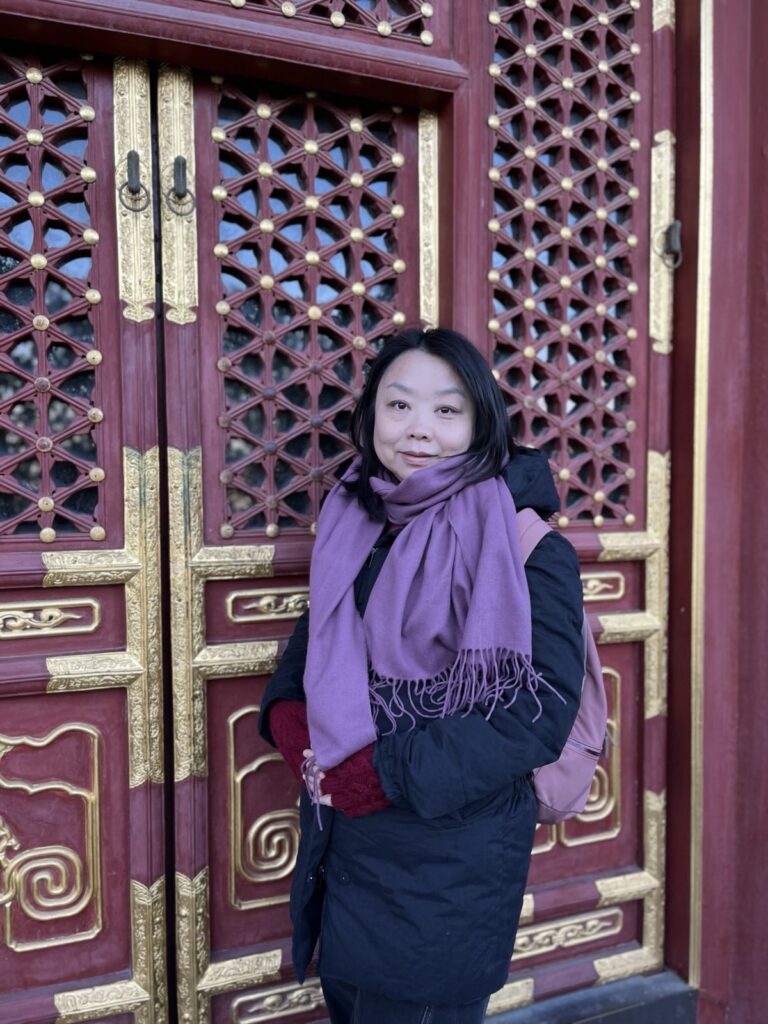
This has to do with the influence of political censorship, business models, and other factors. You’ll also notice that rural topics have become less common. Many young journalists grew up reading in-depth reporting that was primarily in a creative nonfiction style, and the in-depth pieces they write also lean toward that creative nonfiction approach. Of course, creative nonfiction is itself a way of pushing back against the censorship environment. But for example, when someone asks me to look over a draft, I’ll say that back when we worked at newspapers, this article would have been 5,000 words at most —how did you end up writing 12,000? They tend to focus on literary writing and include a lot of details that we used to think were unimportant in journalism. But sometimes, parts of the fundamental news elements — the 5Ws and 1H — are missing, creating this kind of suspended state where time and place feel disconnected.
As for what’s possible, even media outlets with editorial rights (採編權) — [meaning they are authorized to conduct reporting] — in many cases no longer do investigative reporting or engage in watchdog journalism. Some long-form nonfiction or feature-oriented media outlets are perhaps still trying to find ways to carry out such work, but they cannot provide journalists with the necessary conditions to do it properly, including, in some cases, even the legitimate press credentials required to report.
TJ/CMP: In your article News Media and the Feminist Movement in China: A Brief History, you wrote that female journalists have their own community, noting how they supported each other during the Zhuhai hit-and-run incident of 2024, for example. Can this compensate to some extent for the industry-wide issues you mentioned?
Li: I think journalists all grow up with the company and competition of their peers. Actually, there’s more cooperation than competition, so it’s very good for female journalists to have a network. In the past, there might have been more media reports, and everyone’s cooperation was like scattered flowers — different provinces all had media reporting and publishing reports. But now only a few individual media outlets can publish much of anything — even if everyone’s level of cooperation remains the same.
TJ/CMP: After 2017, you went into teaching. What advice would you give to students or young Chinese people who want to become journalists?
Li: I previously taught domestically at Shantou University in Guangdong. Shantou University’s Cheung Kong School of Journalism and Communication was greatly influenced by its founding dean, Ying Chan [NOTE: Chan was also the founder of the China Media Project]. So it emphasized journalism practice and valued teachers’ newspaper industry backgrounds. But later it became much like other journalism schools in China, where teachers must have doctoral degrees [over practical experience]. I felt at the time that this was problematic.
On the other hand, some of my students were intimidated or interrogated by the police while still serving as interns. For all sorts of reasons, journalism has become extremely high-risk. The risks they face are completely different from what we faced back then. At that time, we had institutional protection. Now, even with institutional protection, it’s not really possible to do real journalism.
But I still believe in journalism. The skills you develop as a journalist—learning to explore and understand the world on your own terms—will serve you no matter what path you take later. And for young people willing to pursue this work even in today’s harsh environment, driven by idealism and a desire for justice, that persistence will pay off. They will find ways to make a difference.

Dalia Parete

